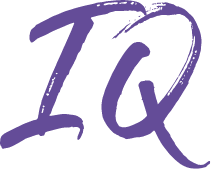Make An Internship Journal - Here's How!
When one of our students from Gonzaga University wrote in and told me about the internship journal she created at her summer internship -- I knew we needed more details! Myra made us a whole list of everything your INTERNSHIP JOURNAL should contain. Enjoy and let us know if you have anything like this!
1. The first item in your intern journal is a general explanation of any projects/tasks you have been assigned. This part asks the questions: "What Did You Do?" and "What Did You Learn?" Essentially, you should recall exactly what you did for that specific project/task and any new things you learned as a result of completing the assignment.
2. You should also include a "soul-searching" bit. Here, you should note how that particular task/project made you feel, whether or not you actually enjoyed what you did, and if you can see yourself doing that specific type of assignment for the rest of your life. I think this is especially important because it really allows you to reflect on your experiences and possibly learn more about your passions and interests as far as work and career-life goes.
3. Include dates the projects, tasks or assignments were completed. This might not seem as important; but could be extremely helpful if you're wanting to spruce up your resume, add any additional information to your LinkedIn account, are preparing for interviews, etc. Also, by keeping track of dates, it will be easier to gauge whether or not you were granted more responsibilities as your internship progressed.
4. Make note of the general category of the project or task. This would just be 1-2 words explaining the general focus of the task. For example, you could list "Merchandising," "Accounting," "Recruiting," "Compensation," "Finance," "General Clerical/Administrative," "Networking," etc. This is helpful if you were assigned many projects/tasks throughout your internship and you want to keep track of where you spent most of your time.
5. Finally, include the skills and tools you used to complete the tasks. For example, you may have used Microsoft Excel, Word, Adobe Photoshop, the Internet. Or you may have used researching skills, problem-solving skills, teamwork and collaboration... Keeping track of the skills and tools you utilized will also help to spruce up your resume when the time comes to apply for more jobs/internships.

